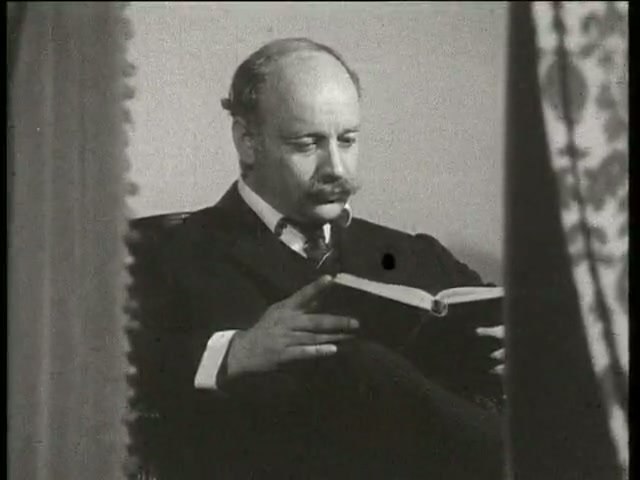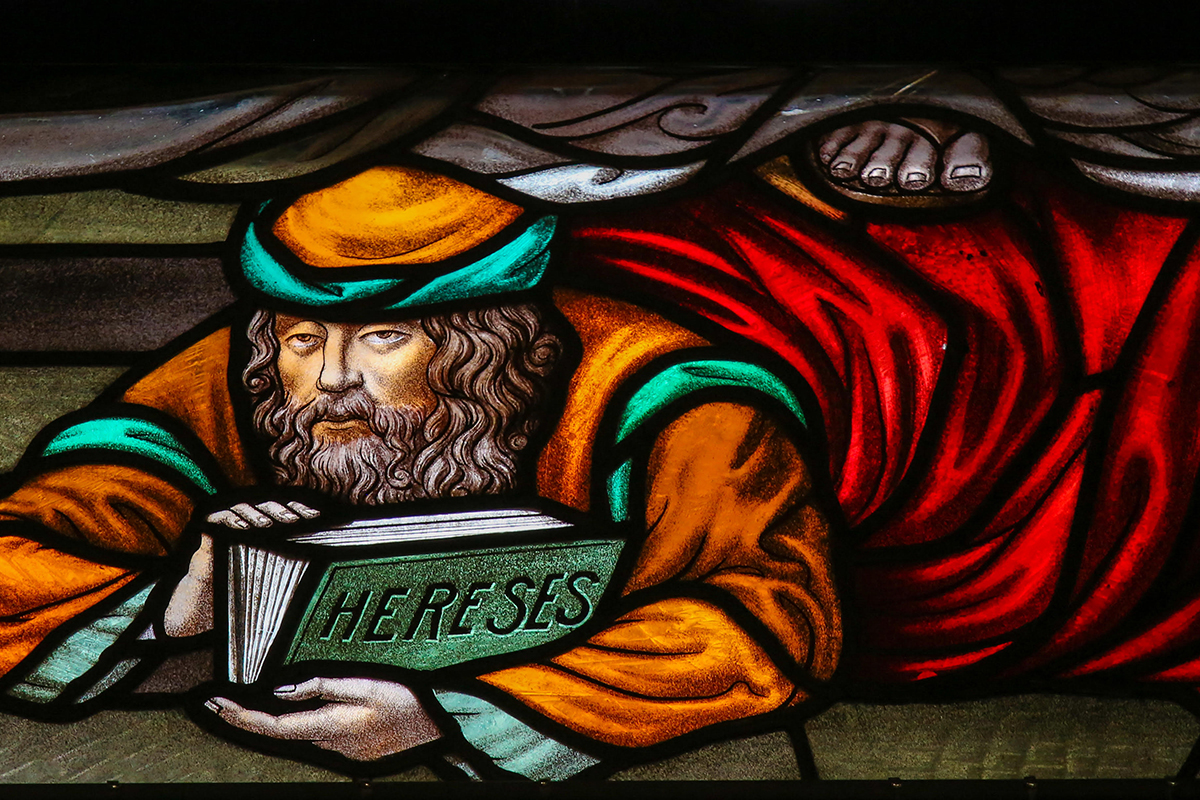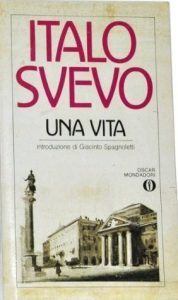Books
Interpreting Italo Svevo—When Literary Orthodoxy Misses The Mark
Marx’s ideas have been debunked by economists; Freud’s ideas have been debunked by psychologists.

The orthodoxy among literary scholars
In 2019 I attended the annual conference of the Associazione degli Italianisti (ADI, The Association for Scholars of Italian Literature), in Pisa. The conference’s theme was “Literature & Science;” I was invited to participate in a panel, along with some other scientists, and attended as many presentations and debates as possible. Although I was relieved to learn that literature in Italy has not been taken over by social justice activism as has happened in the U.S., Italian literary studies are not immune to rigid orthodoxies.
The study of 20th-century Italian literature is strongly “theory-driven,” and dominated by two schools of thought: the Marxist, and the psychoanalytical (or Freudian) school. In the past, there was also a Catholic school in Italian literary studies, but it is no longer prominent.
The Marxist school is based on Marx’s axiom that art and literature are the product of socio-economic processes, and therefore that novels must be understood from the perspective of class struggle. The psychoanalytical school is based on the premise that, insofar as literature is a product of the human mind, novelists and their work must be interpreted from the perspective of subconscious and conscious mental processes, as described and explained by Freud.

Marx’s ideas have been debunked by economists; Freud’s ideas have been debunked by psychologists. These facts are irrelevant to many scholars in the humanities, who believe that they can safely ignore developments in other academic disciplines even when they base their work on these very disciplines.
Critical interpretations of 20th-century literature in Italian academic books and articles almost exclusively offer Marxist or Freudian perspectives; senior professors teach orthodox views of literature in their courses; young scholars are hired who were almost exclusively trained in orthodox traditions, and mentored by the orthodox; high school textbooks present orthodox views as Revealed Truth; teachers teach their students accordingly. Even discussions of literature on TV and radio, in magazines and newspapers, and in events at book festivals, are dominated by the orthodoxy: Dissenting views are conspicuously absent – either indirectly discouraged or directly suppressed.
But when a Marxist or Freudian interpretative framework is forced upon an author, this may lead to radical misinterpretation. This is a particular problem for the great Italian writer Italo Svevo.
Italo Svevo
“Italo Svevo” (Ettore Schmitz, 1861–1928) is one the major novelists of the 20th century; his best-known works are the three novels Una Vita (1892), Senilità (1898), and La coscienza di Zeno (1923). Recognition of Svevo’s work occurred late in his life, only after the publication of La coscienza di Zeno, thanks to James Joyce and Eugenio Montale, who brought this novel to the attention of critics. La coscienza di Zeno is often mandatory reading for Italian high school students.
The critical consensus on Svevo’s work is that his novels constitute a narrative trilogy with a strong autobiographical current, which is centered around “inept” protagonists, whose personalities, ideas, ambitions and life trajectories are modeled after Svevo’s own. The protagonists of these three novels, Alfonso Nitti, Emilio Brentani, and Zeno Cosini, appear similar to each other in that they are unable to fit into the traditional dynamics of family life, friendships, and work; therefore they must deal with difficult and frustrating relationships with their parents, children, wives, mistresses, friends, co-workers, and employers.
Freudian critics emphasize how Svevo does not aim for an objective narration of facts and events; instead he lets his protagonists engage in introspective analyses of their thoughts and behavior, to explore the recesses of their consciences and unmask how unconscious desires and fears generate their motives. In this interpretation, Svevo’s protagonists cannot actively engage with the world because they are too preoccupied with introspection and self-analysis. This makes them “inept.” Svevo’s protagonists are pathologically inwardly oriented; their lives are governed by chance events; or else these men are victimized by other, more socially competent individuals.
Marxist critics argue that Svevo aims to demonstrate how the thoughts and behavior of his protagonists are determined by social and economic processes. According to these critics, Svevo’s characters are identified by their particular socio-economic status as bourgeois intellectuals. For Marxists, Svevo is aware that an individual’s psychological processes are the product of his socio-economic status; therefore, by representing the minds of his fictional characters, he can make a statement about the particular characteristics of the intellectual bourgeoisie. These critics claim that Svevo’s goal is to expose the crisis of the bourgeoisie and its cultural and moral values. Thus, the “ineptitude” of the protagonists is a historical phenomenon for which the individual’s responsibilities are shared with, or even fully determined by, society.
Both Freudians and Marxists have missed the mark on Svevo. There is another, more compelling interpretation of his novels, which has never been fully articulated in print, mainly because it challenges these orthodoxies.
Svevo grew up in Trieste, which at that time was still part of the Austro-Hungarian empire. He was exposed to a convergence of Italian, Austrian, German, and Slavic cultures. As a young man, he read Schopenhauer, Nietzsche, Marx, and Darwin, but Darwin and Schopenhauer had the greatest influence on him. He thought Freud was a great man, but wrote to a friend that Freud was “more helpful to novelists than to patients.”
Svevo had a much more positive opinion of Darwin, and absorbed Darwinist notions about how behavior is influenced by biological predispositions, and how “natural laws” regulate relationships between individuals. Svevo remained convinced that human minds and behaviors exhibit many characteristics shared by all human beings, regardless of historical, social, and cultural contingencies, and that social dynamics reflect competition for survival and for reproduction (Svevo calls it “la lotta’”or “the struggle”).
From Schopenhauer, Svevo absorbed the ideas that free will is an illusion, and that those who deceive themselves about their free will must be unmasked. Although Schopenhauer’s philosophy and Darwin’s scientific theory operate on different epistemological levels, they are mutually compatible, and even complementary. The cross-pollination of Schopenhauer’s philosophy with Darwinism led Svevo to interpret human nature as inevitable and immutable. Svevo’s deterministic view of human nature stems, not from Darwin, but Schopenhauer.
A different reading of the “inept” in Svevo’s novels is at the heart of my criticism of orthodox interpretations. In Italian, “inept” can be a noun or an adjective, and has two meanings. One refers to a person who is clumsy or incompetent and lacks proper skills (for example, social skills). The other meaning is “maladapted” (from Latin: in+aptus= “inadatto”). This does not necessarily imply missing or defective skills, but refers to the possibility that the individual is not adapted to his environment; this misfitting between individual and environment can come from the individual (by his own nature, or by choice), or the environment (if, for example, the individual cannot keep up with sudden changes in the environment), or both.
Both Marxist and Freudian critics contend that ineptitude is essentially a psychological weakness that renders Svevo’s protagonists unable to engage with life. But Svevo made it abundantly clear that his “inepts” represent men who are maladapted to life in a Darwinian sense—particularly intellectuals who refuse to engage in the “struggle for survival.”
Una Vita

In Una Vita, the protagonist Alfonso Nitti one day discusses seagulls with another character, Macario. Macario explains that the bodies, brains, and behavior of seagulls have evolved for catching fish and eating them. People who have a pragmatic approach to life—Macario explains to Alfonso—are adapted to “the struggle for survival” like the seagulls, whereas intellectuals like Alfonso lack the skills, motivation, and actions for success in society, and therefore the wings to fly, and the appetite to hunt for and eat fish. Macario jokes that Alfonso has wings only for “poetic flights”.
Una Vita scathingly represents the dynamics of human relationships, and the motives that drive human behavior. Svevo shows how human nature manifests itself in the predisposition to compete with others, the aspirations to achieve high status, the desire for financial gain, the narcissistic need for acknowledgment of our merits, and the drive for sexual conquests.
Alfonso Nitti refuses to let himself be driven by biological predispositions. He feels superior to the masses by virtue of his education and his moral principles, yet he becomes angry and frustrated upon the realization that his nature cannot be controlled or suppressed: It is impossible not to be influenced by biological motivations—ambitions, desires, emotions. He attempts to resist, he fails, and ultimately, he resolves to commit suicide, in an act of rebellion against human nature. Alfonso’s resolution is expressed in his final thoughts:
it was necessary to destroy that restless organism: if it had remained alive, it would have dragged him again into the ‘struggle’ because it was designed to do so.
Alfonso refers to himself as “that organism,” distantly using the third person instead of the first, “that” instead of “this,” and “organism” instead of “person” or “individual.” Through these elements, Svevo emphasizes the biological essence of human nature, conveying how Alfonso feels almost possessed by his human nature, as if this were a ghost possessing his body.
The use of “restless” illustrates how biological impulses operate continuously in an individual, while “because it was designed to do so” acknowledges that human beings are programmed by natural selection to act in ways to promote their own survival and reproduction (here indicated by the word “struggle”).

Senilità
In his second novel, Svevo elaborates on the autobiographic themes introduced in Una Vita, without using literature to explore human nature and the human condition. The structure and plot of Una Vita are organized to express Svevo’s own views of life and human nature; this is not true for Senilità.
After Una Vita failed to interest readers and critics, Svevo tried to assert himself purely as a novelist, not a thinker. Svevo himself later acknowledged, in his Profilo autobiografico (1928), that “Here in Senilità there are no philosophical goals, nor the human weaknesses are sublimated by theorems.”
From a purely formal and stylistic standpoint, Senilità is arguably the best of Svevo’s three novels. Unfortunately for Svevo, his effort was not appreciated. Critical recognition and literary fame reached Svevo only 25 years later, when he decided to abandon the classical style and set out to write a new novel, which was a lot more idiosyncratic: La coscienza di Zeno.
La coscienza di Zeno
The protagonist of La coscienza di Zeno is Zeno Cosini, a 57-year-old man (Svevo himself was 62 when he wrote this novel), who narrates events of his life on the advice of his psychoanalyst. Zeno is neurotic: He self-analyzes constantly, worries about everyone and everything, and even develops psychosomatic symptoms, including discomfort in various parts of his body, and a limp. Neurosis and psychosomatic illness are used by Svevo to justify the introspective character of the narrative and highlight how the protagonist’s cognitive-philosophic outlook on life differs from the people surrounding him.
Although Svevo’s convictions appear unchanged, the mature novelist who wrote La coscienza di Zeno features a significant new strategy for developing them that the young author of Una Vita did not employ: Zeno’s detachment from living his life and narrating and interpreting it. The inept Zeno is resigned to living in the society to which he belongs, maintaining relationships with others, and accepting their social conventions and values.
Zeno rationalizes his forced integration into society by arguing that in society there are both “sane” and “ill” individuals. Sane individuals are well-adapted to the environment: they aren’t introspective, and don’t try to understand what drives their behavior or governs human lives. Rather, they let themselves be driven by their biological impulses—they are also described as “the fighters,” meaning that they are actively engaged in “the struggle for survival.” Zeno analyzes himself and life, and as a result he suffers. He is not psychologically weak or impaired, he simply does not spontaneously adapt to the environment like everyone else.
Zeno’s distinction between others’ sanity and his illness is ironic: Although he pretends to admire the sane—his father, his father-in-law, his wife—really he despises them and is convinced that their sanity is an illusion: they are sick, and Zeno the inept is the only sane individual. The so-called sane live their lives stumbling in the dark; unbeknownst to themselves, they take turns playing predator and prey, parasite and host, exploiter and exploited, winner and loser. As Zeno concludes: “in life there are very few true winners; all the others end up destroying each other or themselves.”
Svevo’s is a pessimistic view of the relationship between the individual and the world: Human beings are not free, because their actions are influenced, driven, and constrained by forces stronger than will power or free will. Marxist critics argue that these forces originate from historical and socio-economic circumstances; Freudian critics assert how these forces come from the depths of the subconscious. But in La coscienza di Zeno there are few (if any) references to the historical, socio-economic, or cultural context, or the Freudian subconscious; whereas references to nature and evolution are ubiquitous.
In Zeno’s musings about “natural laws,” there are predators and prey, as well as parasites and hosts. Although the natural world is not a happy place, animals do not suffer psychologically from conscious awareness of what they are doing or why they are doing it. According to Zeno/Svevo, biological instincts help animals and human beings adapt to their environment, whereas introspection and understanding of one’s own human nature turn people into “inepts” maladapted to their environment because it is impossible to escape from human nature or rebel against it.
Svevo also develops the notion that human beings, as biological organisms struggling to survive and reproduce, are intrinsically neither good nor bad, just as in the natural world there is no good or bad, right or wrong. In the Darwinian view of life, humans are not at the center of the universe, do not occupy a special place in the world, and were not created in God’s image and likeness; life was not intentionally created by a superior being, and evolution does not lead organisms towards perfection. Life for Zeno is “a huge construction without a goal.” People exist by accident, thanks to circumstances favoring the evolution of intelligence in a particular species of primates.
Due to their ideological commitments to Marx and Freud, Italian literary scholars have failed to recognize that the key to understanding Svevo’s novels lies in the influence that Darwin and Schopenhauer had on Svevo’s thinking and his literary work.
Svevo’s is not an isolated case.
The notion that literary fiction may reflect ideas derived from science or philosophy is more foreign than ever to current literary scholars. This is inevitable given how concepts of science, reality, evolution, and human nature have been banned from contemporary literary discourse. Unfortunately, as literary studies become more entrenched in dogmatic ideological orthodoxy, they also become more detached from the realities of novelists, their lives, and their work—and less helpful to readers who consult the opinions of experts in the naïve hope that these will shed light on what they are reading.






